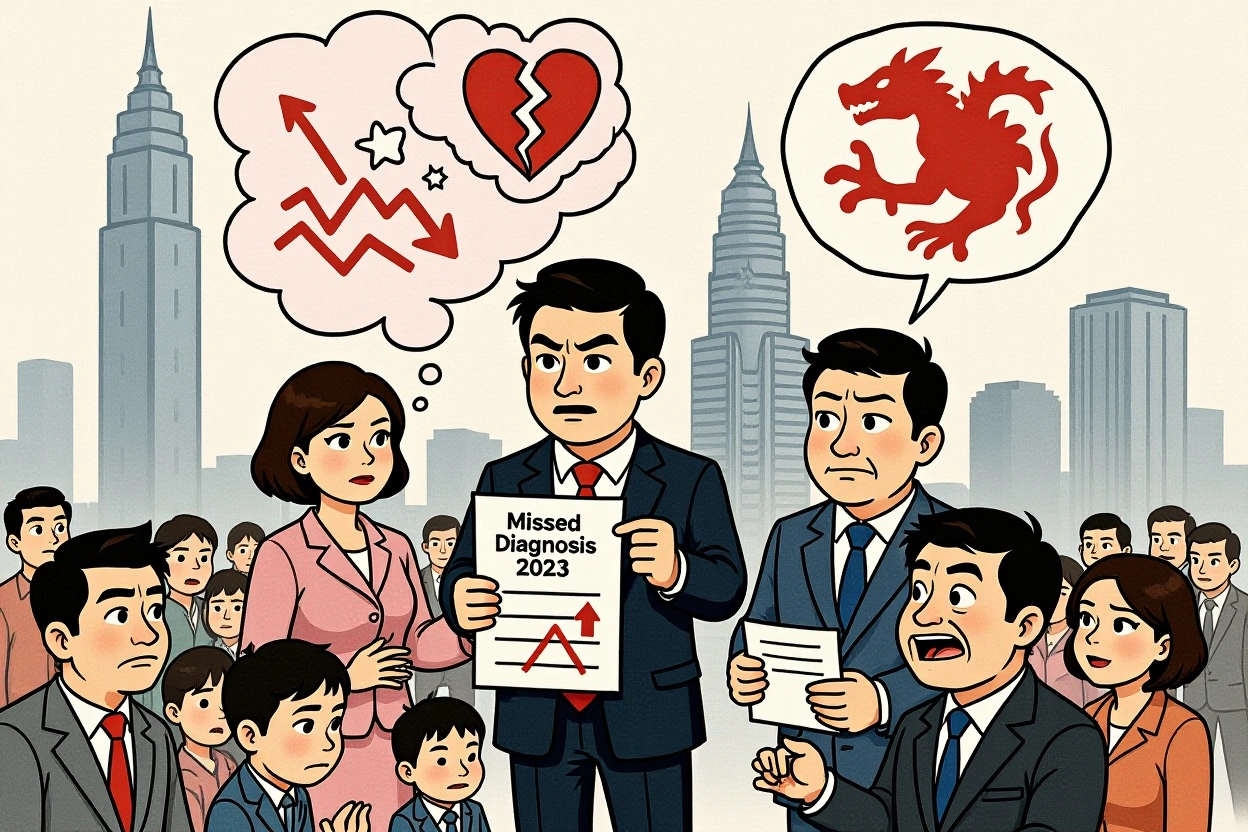The Eroding Trust in China’s Health Screening Giant
After a decade of routine physical examinations at iKang Healthcare Group (爱康国宾), Beijing lawyer Zhang Xiaoling (张晓玲) found herself facing a cancer diagnosis that had gone undetected by their screenings. The conflict escalated dramatically when iKang filed a lawsuit against Zhang on July 30, triggering intense public backlash and exposing deeper issues within China’s private healthcare sector. This explosive situation spotlights iKang Healthcare Group’s alarming loss of public trust. Once revered as a premium health screening provider, iKang now faces widespread condemnation for its adversarial approach to patient complaints, forcing crucial questions about corporate accountability in healthcare services. The unfolding scandal reveals how a failure in ethical communication and patient expectations management can rapidly deteriorate brand reputation.
The Initial Spark: Breakdown in Patient Relations
At the center of iKang Healthcare Group’s unfolding trust crisis is Zhang Xiaoling’s medical journey and the company’s controversial response.
The Decade-Long Health Screening Gap
Zhang, a Beijing-based lawyer, underwent annual check-ups at iKang facilities from 2013 to 2023 using basic screening packages provided through the Beijing Lawyers Association. While her 2023 examination report noted “possible renal hamartoma” and recommended CT follow-up “to rule out other renal space-occupying lesions” – which implies potential malignancy – previous screenings failed to flag abnormalities before her cancer diagnosis. iKang representative Li Xiuqi (李秀池) clarified during the July 30 press conference that Zhang never paid for upgraded screenings beyond the association-provided package after 2017. This information gap has become critical to understanding where expectations diverged, contributing to the current loss of public trust in the healthcare provider.
The Escalation: Legal Backfire
Instead of pursuing mediation, iKang leadership took aggressive legal action. CEO Zhang Ligang (张黎刚) framed filing suit as defending his 15,000 employees’ dignity and the broader medical screening industry’s reputation. Senior Vice President Zhou Xiaojiang (周晓江) confirmed the lawsuit was already filed and accepted by courts. Zhang Xiaoling’s fiery public response – “Litigate then! The sooner the better! Stop lying already!” – went viral on Chinese social media. This combative exchange shocked observers, turning a private disagreement into a stark symbol of broken trust. Industry analysts noted:
– Legal confrontation with patients irreparably damages healthcare provider relationships
– High-profile lawsuits generate perception that corporations prioritize image over patients
– Class-action precedents suggest lasting brand reputation damage outweighs legal victories
Communications Breakdown
The events exposed fundamental failures in how iKang Healthcare Group communicates screening limitations to patients.
The Misrepresented Boundary Talk
During the press conference, Zhang Ligang attempted technical clarification about physical examination realities: “There’s a fundamental cost difference between physical examinations and medical diagnosis… We must understand what preventive screening can realistically achieve.” When media outlets published headlines like “iKang: Don’t Expect Hundreds of Yuan Check-ups to Detect Illness,” the company issued statements accusing journalists of misrepresentation and threatening legal action. This defensive posture worsened existing narrative control issues rather than educating consumers about screening limitations.
Public Perception: The Trust Fallout
Public forums erupted with comments questioning why they’d risk being sued by choosing private screenings. Among recurring themes:
– Disturbing precedent: No consumer expects litigation after paying for elective healthcare
– Transparency doubts: Why withhold imaging scans and technician certifications?
– Alternative consequences: Thousands commenting they’d avoid private providers entirely
iKang Healthcare Group’s loss of public trust became evident as social sentiment ran 92% negative per analytics firm reports, indicating critical reputation damage. This public backlash highlighted the organization’s profound loss of public trust.
The Ethical Implications of Corporate Strategy
Health industry experts identify iKang Healthcare Group’s approach as a textbook example of how not to handle allegations of medical oversight.
Adversarial Approach Consequences
By choosing litigation over dialogue, iKang violated the healthcare sector’s foundational expectation of compassionate care. Medical ethics principles prioritize good-faith resolution, especially when patients face serious diagnoses. The confrontational stance suggested profit protection superseded patient care. As one public health scholar noted: “When institutions treat legitimate questions as legal ammunition rather than improvement opportunities, they accelerate their own loss of public trust.” Threats against critical media compounded the impression of intimidation over transparency.
Ignored International Best Practices
Globally, reputable medical screening providers practice proactive risk mitigation including:
– Report disclaimers: Explicit statements that screenings aren’t diagnostic tools
– Low-cost follow-ups: Affordable CT/MRI options when preliminary findings warrant
– Third-party mediation: Independent medical review panels for disputed findings
– Insurance safeguards: Healthcare liability coverage that builds patient security
These alternatives seem especially relevant given that iKang technically complied with baseline screening standards, yet failed expectation management essential to preventing such erosion of confidence.
Alternative Resolution Avenues Ignored
Before pursuing litigation, multiple conciliatory paths could have averted this loss of public trust.
The Path to Rebuilding Confidence
Medical dispute specialists suggest these approaches might have transformed conflict into trust reinforcement:
– Comprehensive records disclosure: Providing Zhang and independent experts access to her historical scans
– Professional consensus review: Convening multi-specialist panels to examine protocols
– Empathetic engagement: Offering complimentary advanced diagnostics following concerns
– Process transparency: Publicly demonstrating technician qualifications and equipment standards
Case studies like Hospital facing similar complaints further illustrate that admitting systemic vulnerabilities – rather than legal threats – builds lasting patient confidence.
Broader Industry Repercussions
This incident has exposed systemic weaknesses in China’s $40 billion medical examination sector.
Questioning Screening Value Propositions
Thousands reconsidering private physical examinations raise existential questions about:
– Standard package limitations: What actually constitutes early detection capability?
– Regulatory gaps: Why lack standardized report terminology existed?
– Marketing disconnects: How sales claims misrepresent diagnostic capabilities?
The Legal Tangles Ahead
Consumer attorneys report surging inquiries about:
– Medical authorization: Providers have responsibility for negligence regardless of package level
– Service obligations: Baseline expectations around certification requirements
– Challenging waivers: Whether disclaimers legally overcome duty of care
This legal turbulence compounds the sector-wide loss of public trust stemming from the affair.
Charting the Way Forward
The fallout from iKang Healthcare Group’s patient relations failure reveals fundamental vulnerability facing healthcare providers. Data shows China’s private medical market expanding annually by 14%, yet trust violations jeopardize this trajectory. For genuine reconciliation requires transparent disclosure of Zhang Xiaoling’s testing history coordinated with neutral medical oversight. Ultimately, iKang and competitors must implement concrete reforms: clearer screening limitation communications, affordable diagnostic pathways following concerning findings, independent dispute resolution mechanisms, and binding accountability standards. This is the sole route to reversing the profound loss of public trust. Patients deserve healthcare partners who respond to concerns with compassion, not confrontation.




